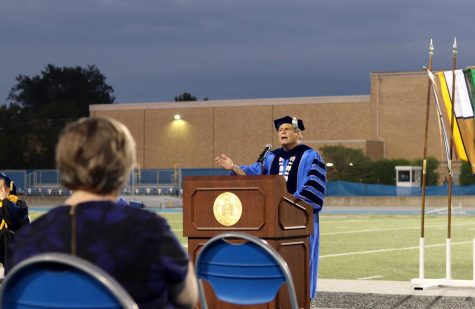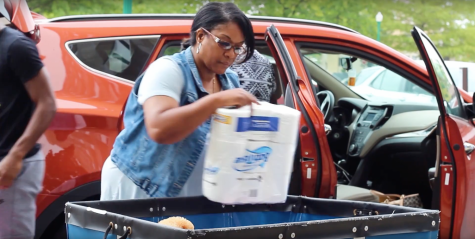Another type of Ruckus enters Eastern
As students gather back to school this fall, another type of ruckus is likely to enter Eastern’s campus.
Housing and Dining Services, along with Information Technology Services, has been working with Ruckus, a legal downloading program for students. Ruckus allows only residences at colleges and universities to have access to their music, movies and television shows.
Mark Hudson, director of housing at Eastern, said he cannot yet say for sure if it is going to happen.
“We’re still working on finalizing it and won’t know for a couple more weeks,” Hudson said.
The University heard about Ruckus from advertisements and other campuses with the service.
“We asked for more information, and I worked with Ruckus during the summer,” Hudson said. “Now we’re in the final stage.”
Ruckus is a legal service because it gets music from record labels and CD aggregators. They pay the record label each time one of their tracks is played and use Digital Rights Management to protect what is being downloaded. To maintain agreements with labels, DMR prevents transferring songs outside of Ruckus and confirms that the song is being played by a Ruckus user.
Hudson said he does not want to talk much about Ruckus until they have decided to use it for sure, “but the concept is it will provide an opportunity for students to listen to music on their computers.”
“It’s basically an internally high-tech juke box,” Hudson said. “It’s not for your iPod, only internal for your computer.”
The music works with many portable audio and mp3 players, but not iPods. In addition, music cannot be burned as part of the license agreement with record labels. Burning can be done, though, at eMusic and Buy.com.
Emma Bagsby, a freshman biology major and resident of Andrews Hall, said, “I think we should be able to download.”
Bagsby has not tried to download music or movies while at Eastern but would use the downloading service “if it’s free or decently priced.”
“It is a free service and an exclusive service for on-campus housing,” Hudson said.
Off-campus students can access Ruckus and the music library, but cannot download movies and need to use the Internet where the service is lower quality.
Shih-Pau Yen, deputy CRO at the University of Minnesota-Minneapolis said, “We already had a music provider for a year but then Ruckus came to us and we switched to their free service.”
Yen would recommend Ruckus to other schools. Since it was set up for the University of Minnesota “there have been very little problems and no complaints.”
“I talked to Ruckus to check, and there are over ten thousand students that have subscribed,” Yen said. “So far it’s been good and it works for us.”
Evie Honhoinewa, a student computer center employee at Arizona State University, said “One day they came to see us with advertisements on posters, fliers and t-shirts, and the next day they disappeared.”
Although Arizona State is listed as having the service, Honhoinewa said she has not heard anything further about it or gotten any feedback.
Valentino Dass, a student worker for computer services at the University of Wisconsin-Eau Claire, is more familiar with Ruckus and said a lot of students there seem to use it.
“They came to our school for three or four days and set up a booth and gave out information,” Dass said. “My roommate has it and I think he likes it because it’s free.”
Keith Dorby, sophomore geology major, has also heard of Ruckus.
“I think it could be very beneficial to on-campus students,” Dorby said.
Dorby does not download music or movies, but would use the service if it is provided and experiment with what it has to offer.
“People who have never downloaded can learn how to,” Dorby said. “I think it will get a lot of use from students.”
If the final result is to use Ruckus, it will be available to Eastern students at the end of September.








































